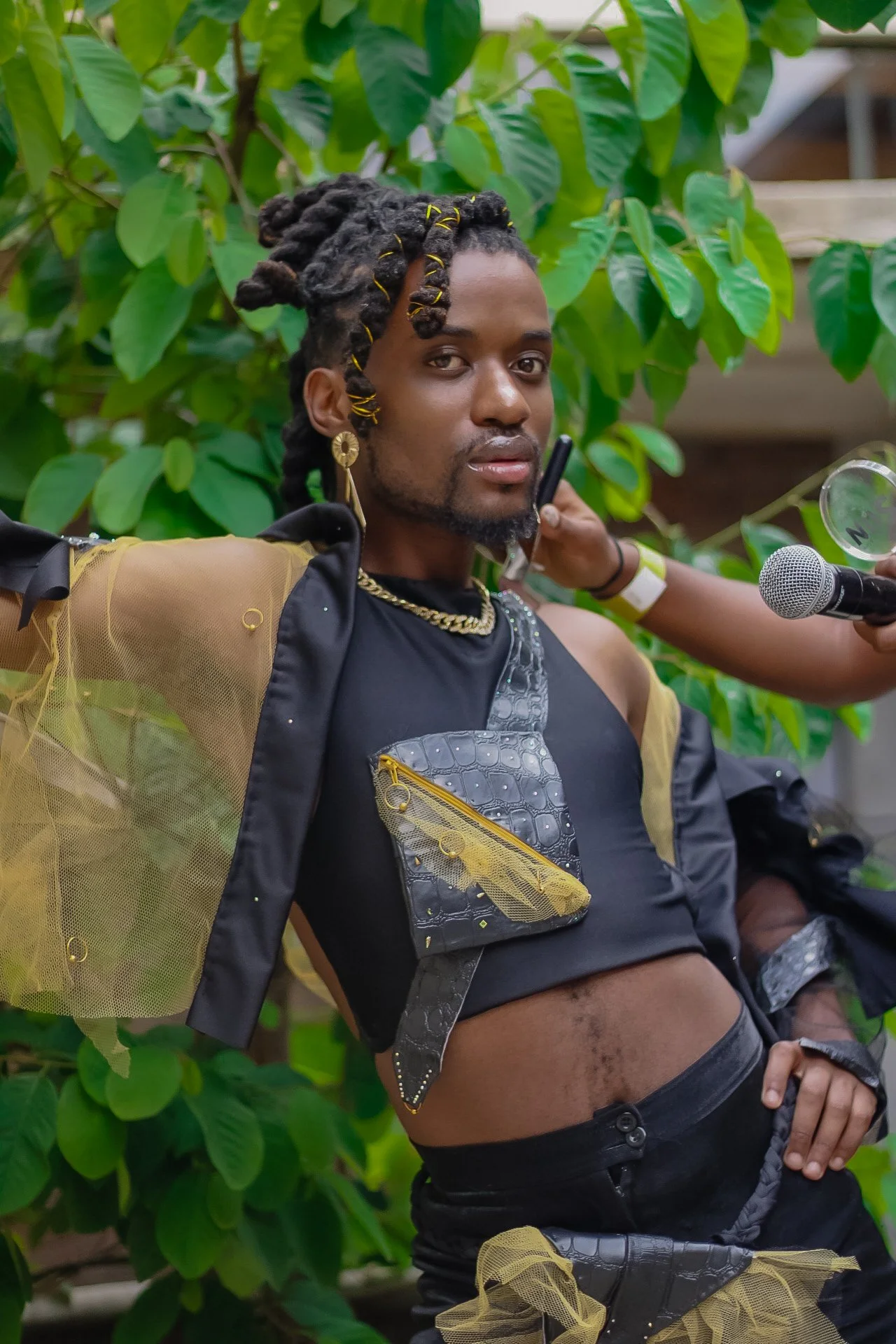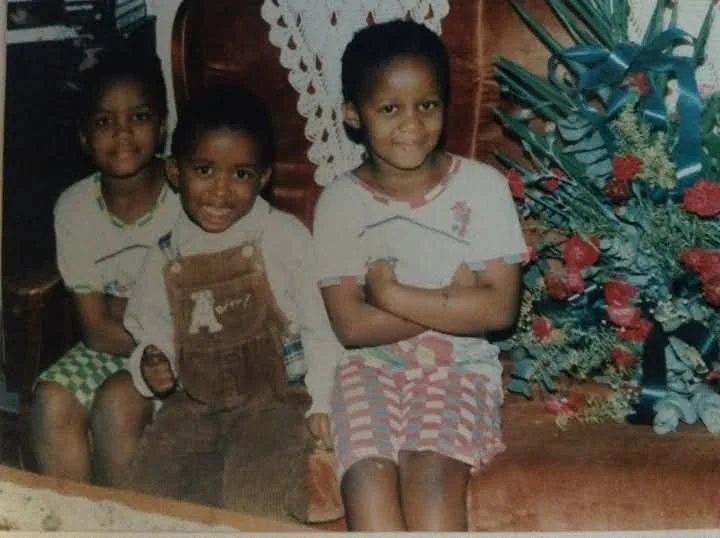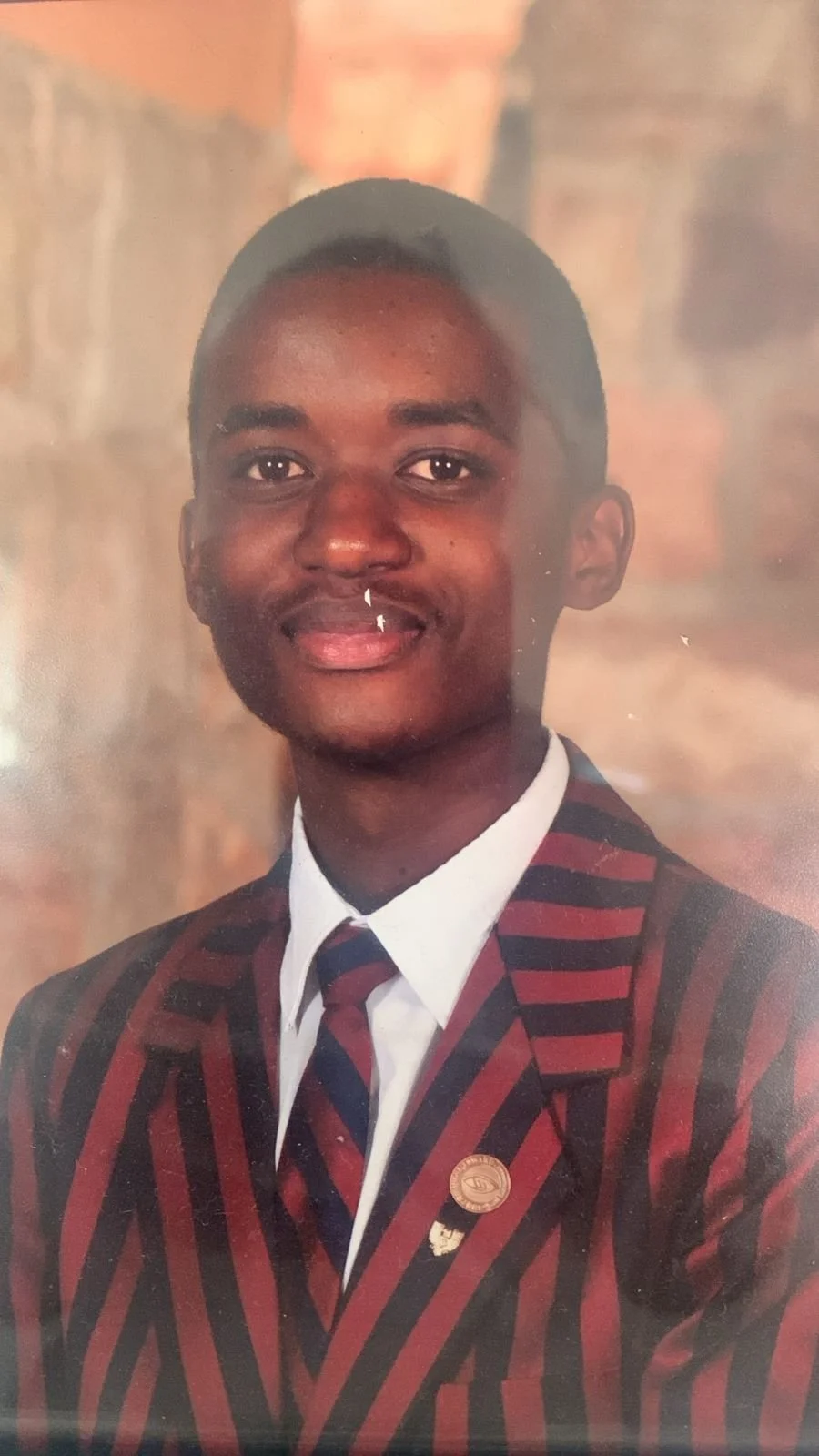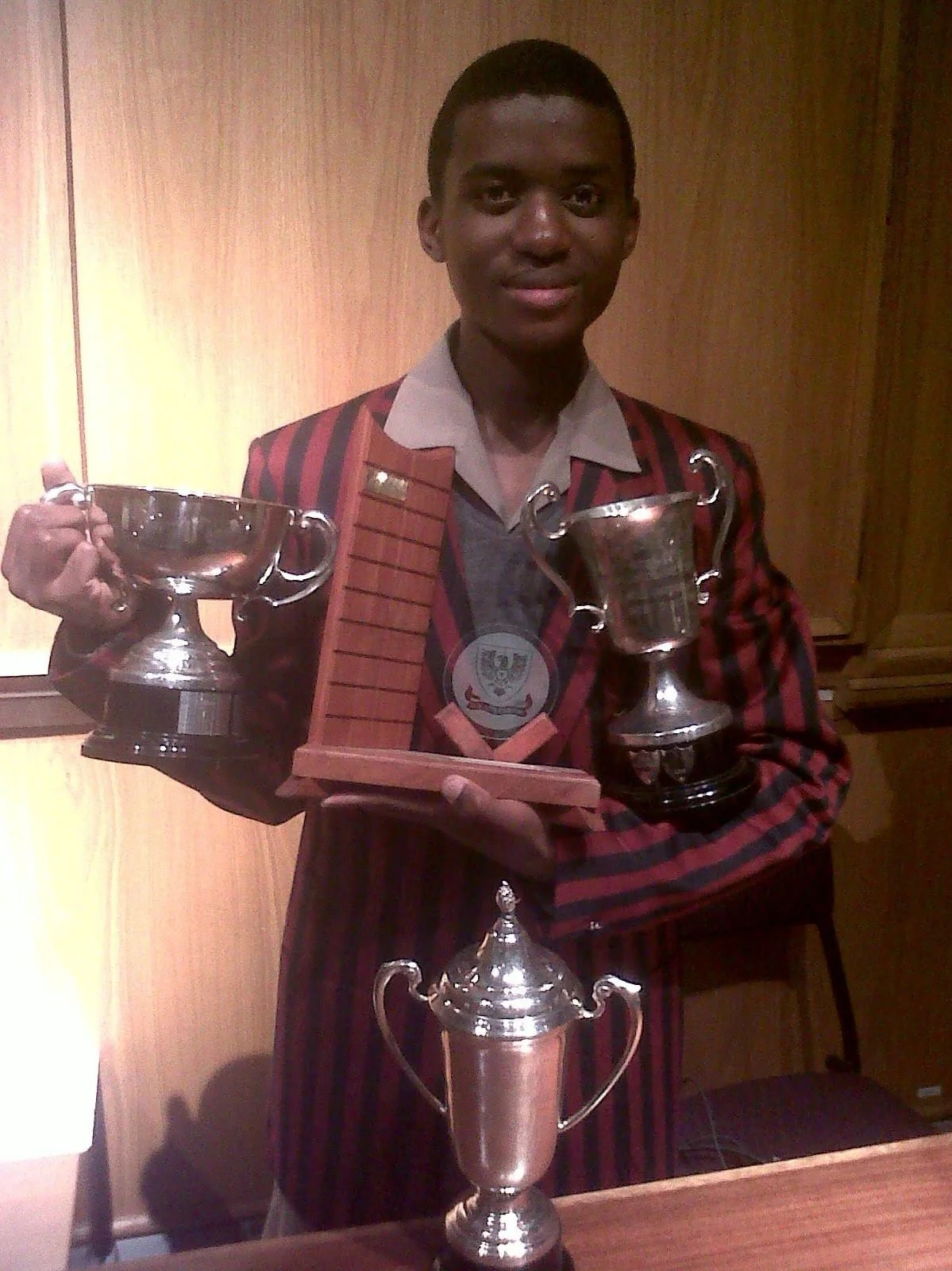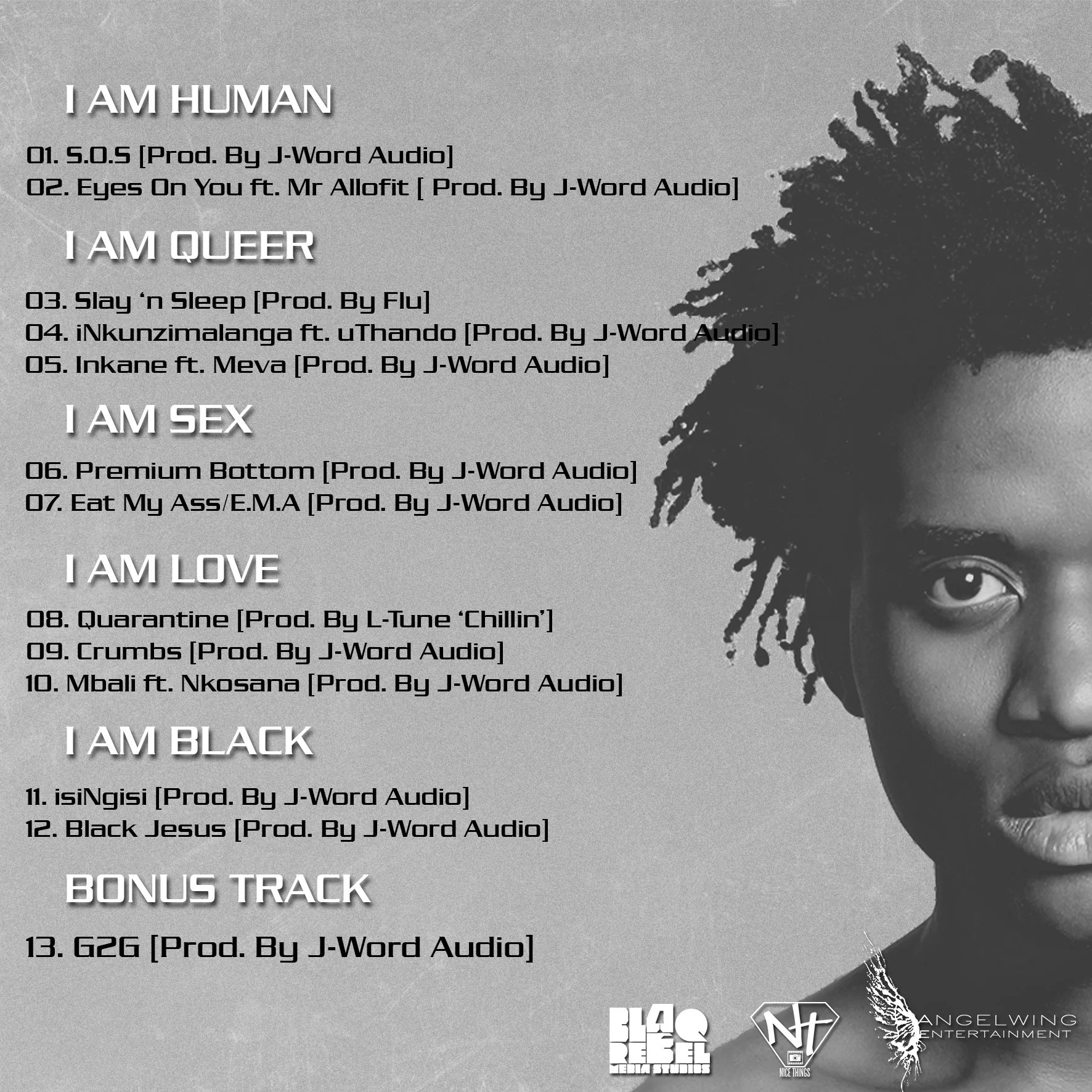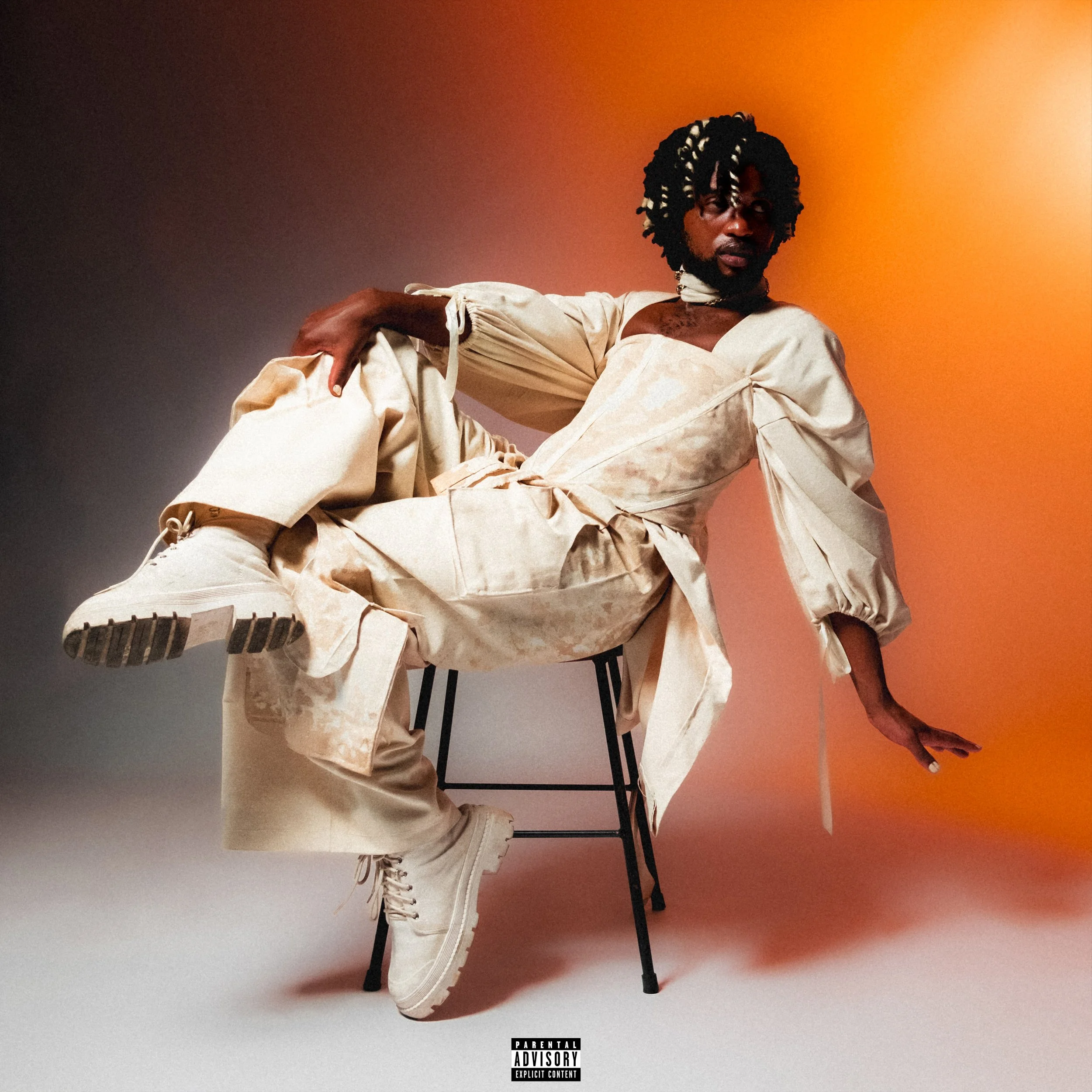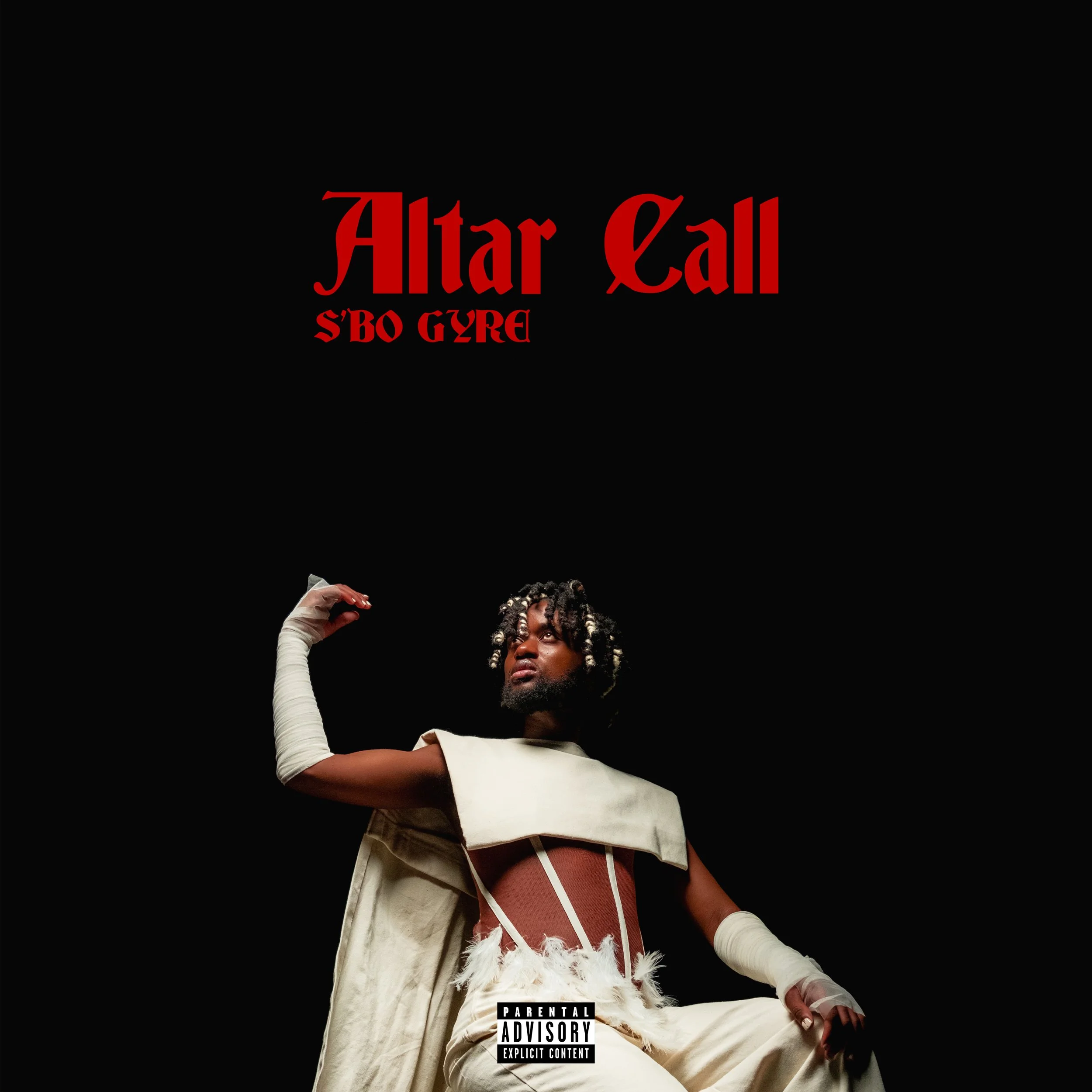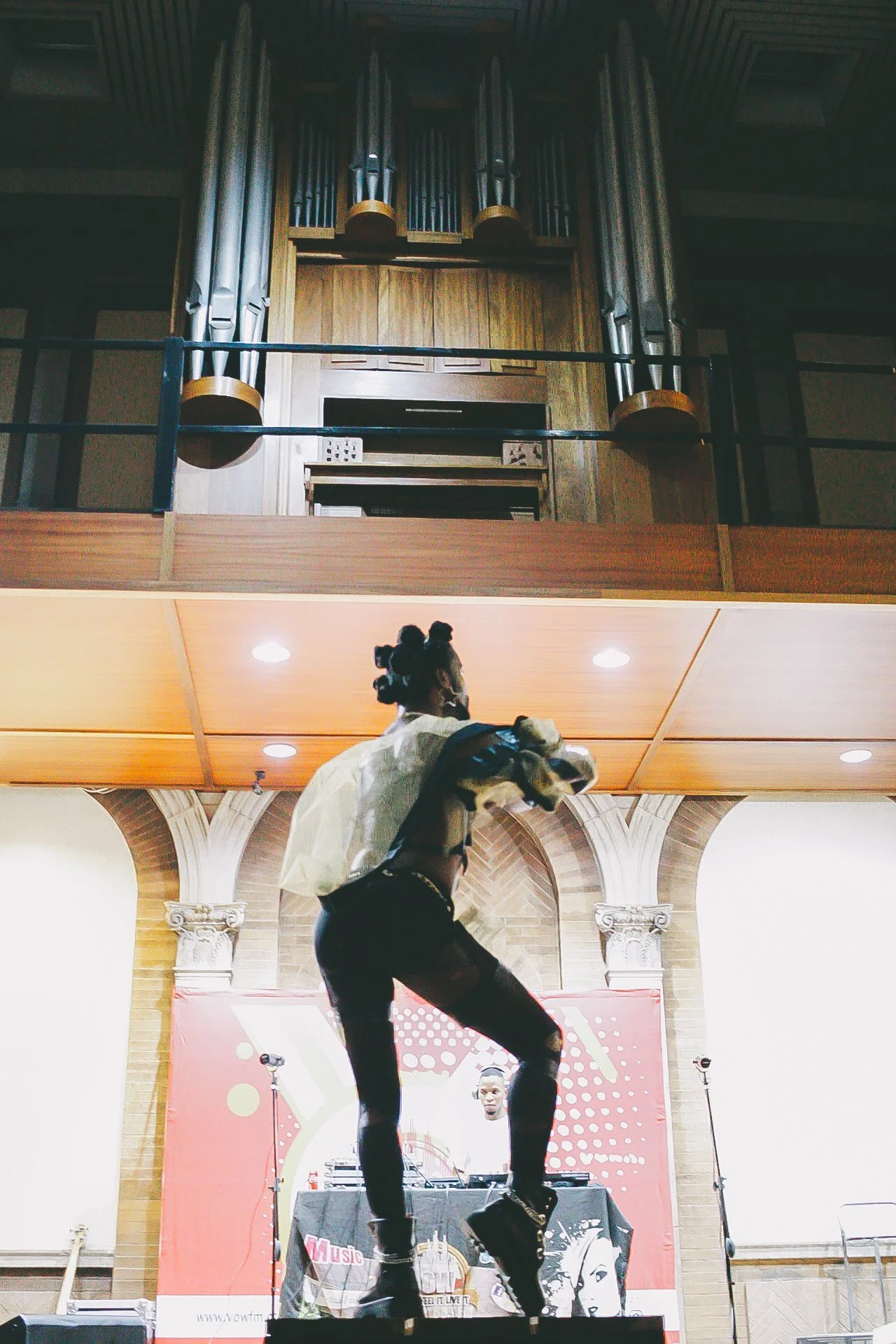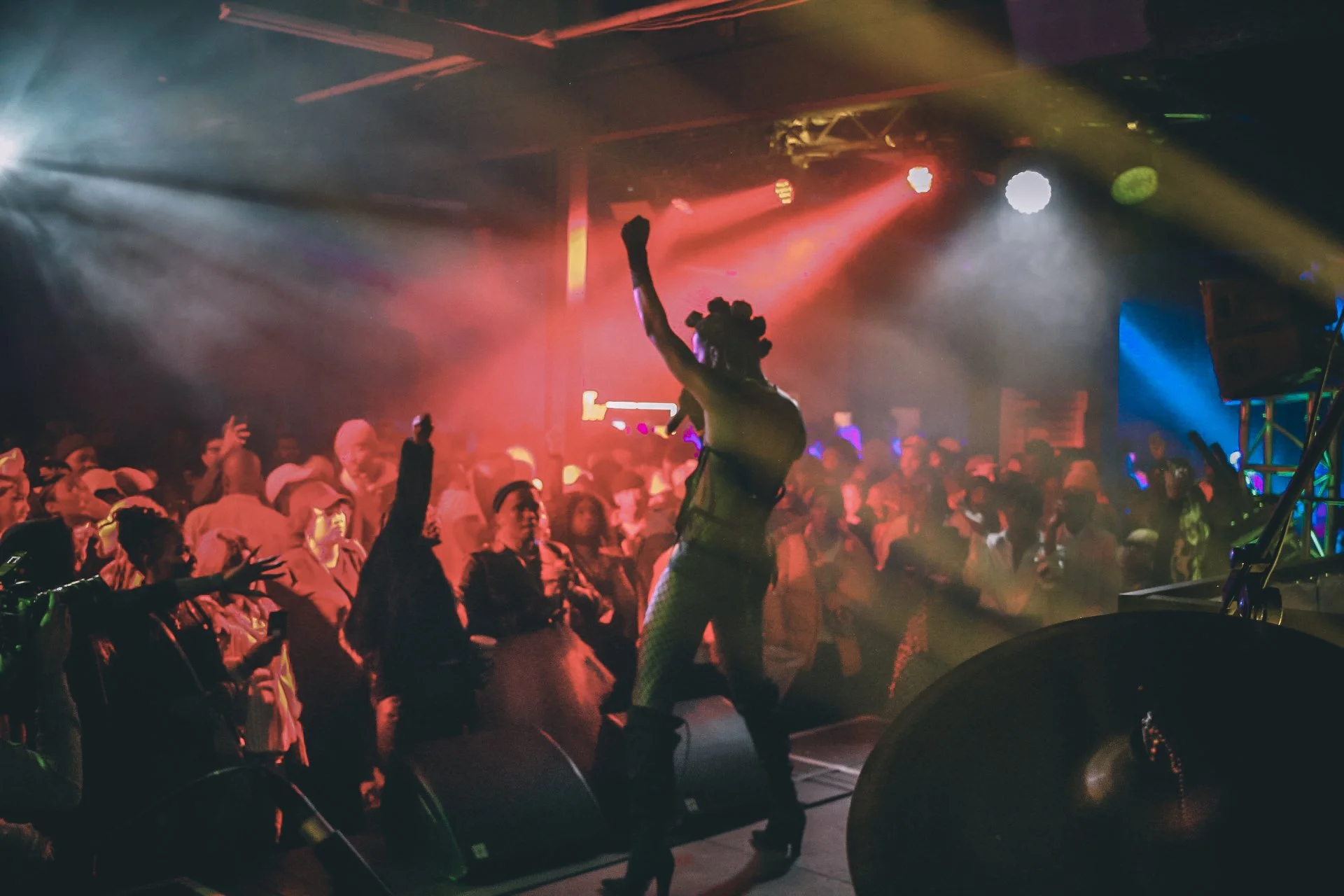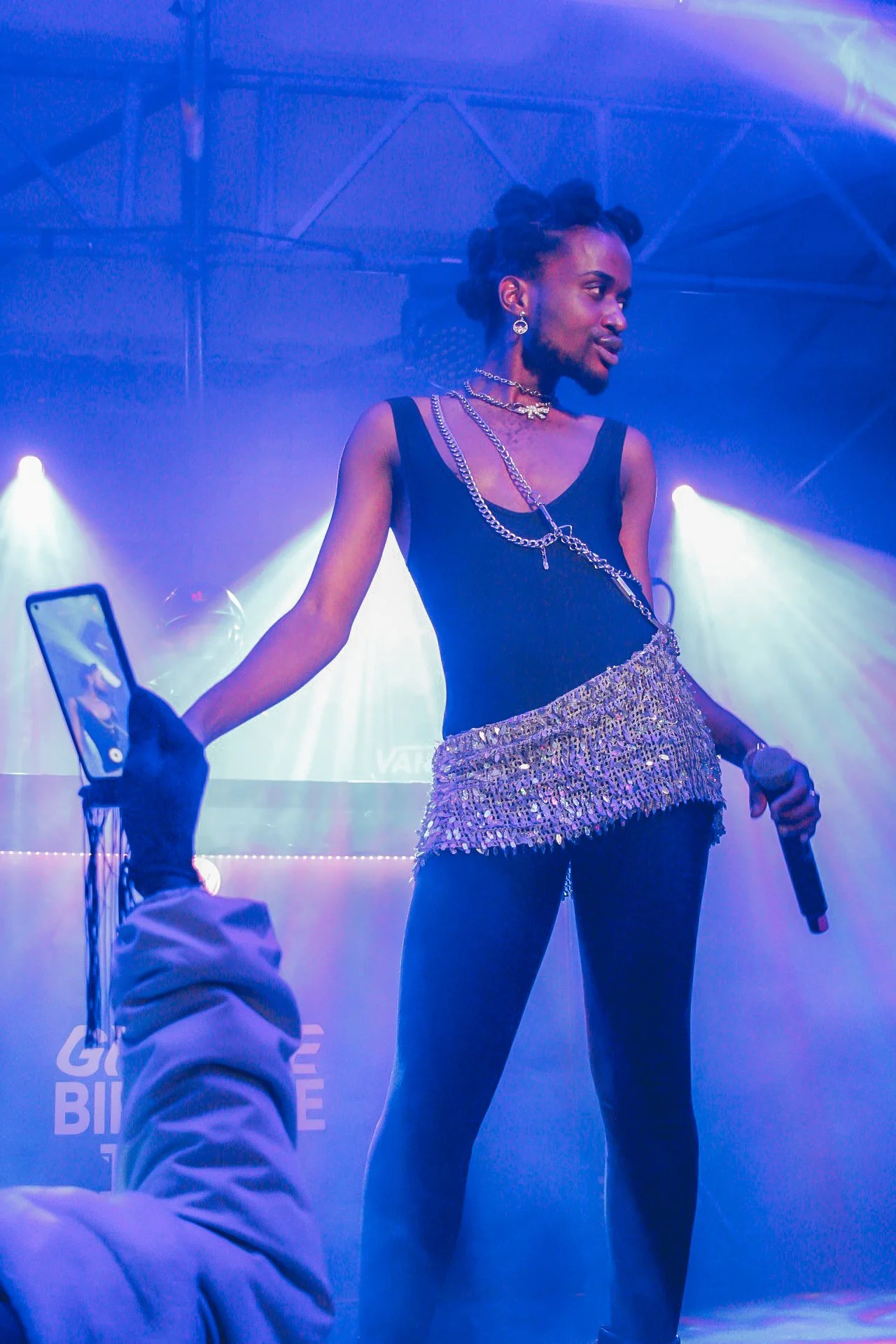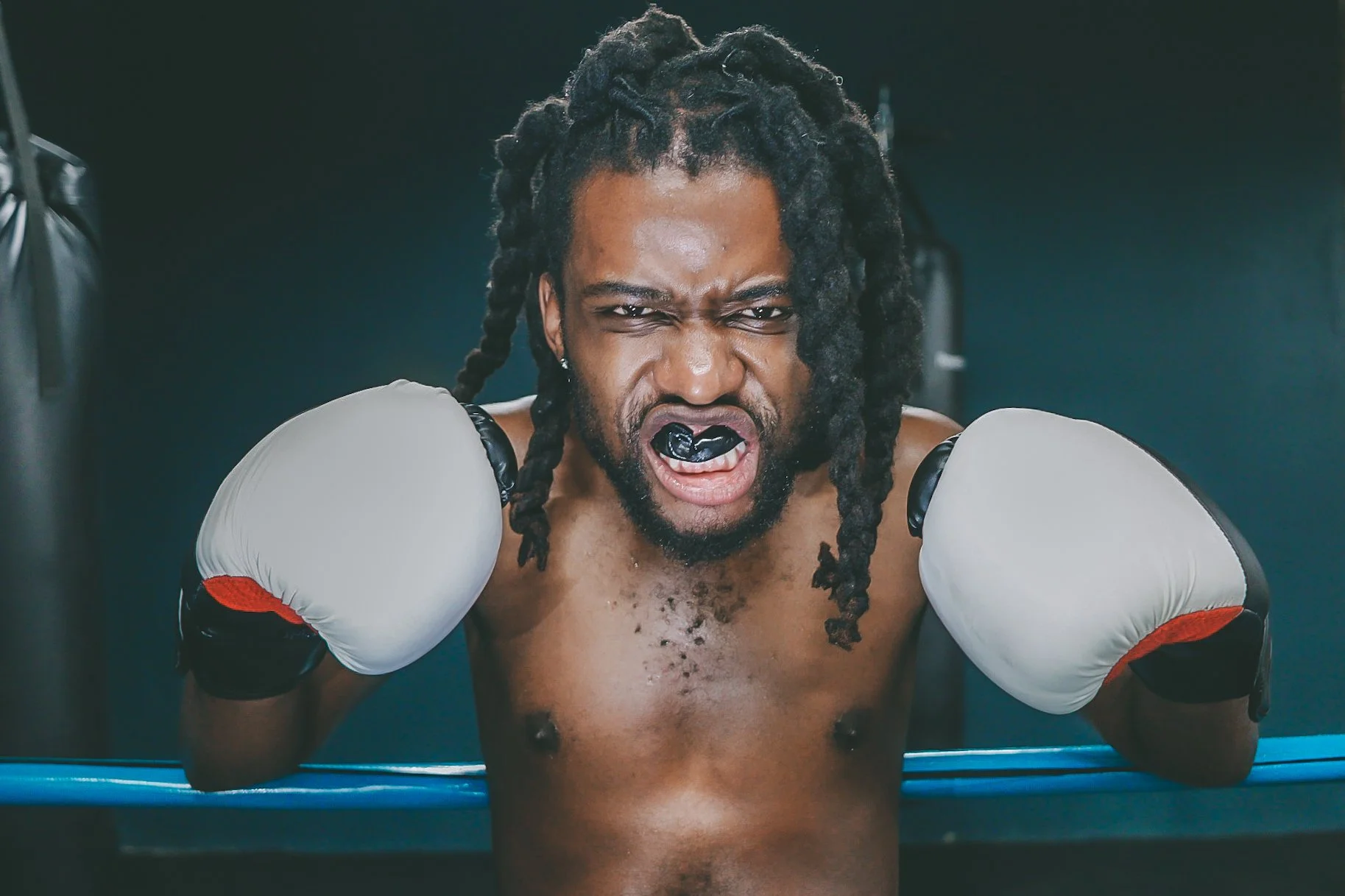“Now I’m fearless - there isn’t a creative room I don’t feel I don’t belong in.”- S’BO GYRE
S’bonakaliso Nene aka S’BO GYRE
Award-winning rapper/ performer/ writer and entertainment specialist
You were born in Empangeni (KZN), can you remember how a young S’bonakaliso perceived the world and life at that time. Is there a specific early memory that you can pinpoint?
I was huge on imagination as a child. I never had many toys to play with (if any at all) so the world I perceived was the one I created in my mind. The memories that come back to me are those where I drew dolls or action figures, made up worlds with maps and lore. My friend, Mbali and I would make up scenarios and play with nature. I think that played a vital role in shaping my perspective as a person and as an artist
Spirituality plays an important role in your life and work (we’ll revisit this later on), but is it something that was prevalent in your household and what do you remember about how it made you feel as a child?
My parents are now pastors but growing up they were moving up the ranks at church, so I effectively lived the life of a pastor's kid. So I was at church ALL the time. And God was at the centre of all teachings at home. As a child, it gave me comfort because of how God was presented to me - as a protector. It was only later when I really had to reckon with the dichotomy of my sexuality and spirituality where that began to shift. But as a child, I always felt empowered by my spirituality.
I know when you were 6 years old, you and your family moved to Johannesburg. Is there anything you can remember about how having to pack up and relocate made you feel at that age?
I remember feeling super excited. My parents, best friend Mbali and our relatives were crying (happy tears). My sisters and I were super excited. We just were revelling in the idea of living in Johannesburg. It became tough as time went on and we missed our old life. In Esikhawini, a lokshin, we had a yard and a community. In Joburg, we lived in a flat in Hillbrow and life was different. I eventually came to love it here as our life developed. But I will never forget driving in and seeing a tall building for the first time. I had the same feeling when I first visited New York at 22. Just in complete awe.
You were writing and creating books in Grade 1 already, and then that transitioned into all kinds of other writing- plays and songs. If you can remember and don’t mind sharing, what was your first song you wrote and can you share some lyrics?
Wow, you are exceptionally researched. I appreciate this.
When my eldest sister Londi was in grade 5, she was tasked to write a song as a part of Arts and Culture. She came home and made it a group activity with my second sister Ziyanda. The rest is history. It was a gospel song, touche. It was in Zulu but translated, it said “Jesus is jumping in my stomach.” I was 7. My sisters remember the melody and make fun of me about it till this day. But the first fully fledged song I wrote was when I was 10 called “Cherish.” It was a love song inspired by my parents 14th anniversary. That’s actually so cute in retrospect.
I find how many queer people navigated school, specifically high school, very interesting, especially queer people from different generations. What was your experience like?
TRIGGER WARNING: As a queer person, it was interesting. I had been bullied in primary School for being feminine. They called me gay as an insult (jokes on them, they were just prophets) so I was determined to not have the same experience in high school but it went up a notch. It was torture at times. I often has suicidal ideation and one day it was so bad I just ran away from the boarding house. But also, I had my first sexual encounter with a boy in the boarding house (and they were good honey - he was a jock). St Johns at the time also had a pretty progressive pastor, Father Jacques. He was amazing. He counselled me for two years as I dealt with my sexuality and made me feel okay about it. So it's funny that it was a clergyman who held my hand as I came out the closet. He was amazing. So yeah, it was a mixed bag.
How did this evolve when you started at WITS to study law?
Honestly, my time at Wits as a queer man was heaven. I was a raging faggot and I loved it. I came out to all my friends by March (they were all shocked that I felt the need to come out) and made one of my greatest friends, Devon then. He and I lived it up. Eventually, this would inform a lot of who I am and I credit this time as the most pivotal and shaping the queer pride I wear on my sleeve today. Even my fourth year research paper was on queerness and the law (particularly, what is incorrectly termed corrective rape). In fact, it was this paper that made me realise that I couldn't make the change I presented in the paper in real life as a lawyer and accepted that I was better placed to influence society as an artist. The choices were either being a shitty lawyer who's broke or a broke artist who’s excellent. I chose the latter and never looked back.
Based on your incredible and impressive creativity, it comes as no surprise that you wrote and released your first offering, Queernomics (2017), while still studying. Before we delve into the project, why did it feel like the right time to create and release it then?
It just had to happen. It was just fate. I had in fact started taking rap seriously because of #FeesMustFall. I was so politically active at the time to the point where those strong feelings translated into my self-actualisation. Those who’ve followed me will know that the first single from Queernomics was “Black Jesus”. Then it was “Premium Bottom.” That shows you how my actualization process was happening in real time. From interrogating my racial identity and standing to my sexuality. So it came about naturally. I also felt the need to humanise my experience as a queer man and I couldn’t help it. It just flowed out of me.
Queernomics is a bold, brilliant, and unapologetically queer body of work. It addresses and reflects on everything from politics and racism to heteronormativity and queer sex. No one is safe, white gays and even Helen Zille get dragged a bit. Why was it important for you to have this multi-faceted exploration as your introduction to the industry?
Firstly, thank you. I won’t lie, even I am in awe of its brazen and unrelenting nature. I can’t believe I was as bold as I actually was and to some degree envy that version of myself because in ways I feel self-pacified now by the world.
Queernomics had to be declaratory in my eyes because there needed to be a strong voice for black queer identity as the voices against us were equally as strong. It had to be layered because the world refused to humanise us and see our nuances. “Eat My Ass” is the perfect example of this. The hook came to me in a dream. But as I wrote it, I had the intention not to shock but to normalize sexual practices although not exclusive to the gay community but widely associated with us. I believed in getting people to sing it with me, it would tear away at our demonising. Everything song, lyric and sound on Queernomics served to tell and reframe the gaze on queerness. We too have an opinion race, politics and overall, our humanity in whatever iteration is equally valid.
The project was also self-funded. Can we talk about the lack of funding for artists and queer artists specifically? What’s your take?
Making Queernomics put me in debt I was only able to settle by January 2023. It was hard. Yes, there are mechanisms that I am aware of now for artists looking for assistance but it's no walk in the park - especially as an independent queer artist. I hope those who follow behind me get the backing of investors and labels (where it is not exploitative) to support their careers. It’s a mountain and sometimes discouraging. I can honestly say the presentation of my art has been hampered by insufficient funding. However, in the same breath, I am proud to have done all I have through my own coffers. They say invest in yourself and I sure have.
In an interview with MambaOnline, you stated that there is “anti-intellectual and shallow discourse on the queer existence that has festered in mainstream media”. Can you expand on that and why you actively strive for your work to be the antithesis of that?
We are sexualised and called gay as a pejorative when we are young by other kids. Clearly learnt behaviour. The default position of society is to sexualise queer bodies before they humanise them - that’s if they ever do reach the latter. All this feeds into anti-intellectual engagement on the queer existence because we are seen as less than human and people therefore engage us and issues that pertain to us in a “lesser than” state of mind.
I make a visible effort to make my work didactic because the onus is with us. The problem as queer folk, in my opinion, is that we have also shoehorned our existence into the binary of sex - belittling ourselves to tops and bottoms, doms and submissives. Controversial to say, but even Pride is centred around the expression of our sexuality through sex and not its true power - cultural prowess and community. It’s not to say the sexual expression of our being isn’t important but we have a role to play in making it what defines us. So can we cannot absolve ourselves of the perpetuation of our sexualisation if we don’t make inroads to platform our nuanced humanity as much as we do our hinds. I think there is a balance and we haven’t found it as a community. Perhaps within ourselves, of which I too am guilty of. So I use my art to take accountability and lead by example.
One of my favourite lines in my song “Bounce” reads “hands up in the sky praise the Lord and then I vogue.” You get it? Balance.
You've adopted the self-proclaimed title "INKOSI YENKONKONI (the gay king)" and state, "My existence is resistance." Could you elaborate on the significance of this title to your personal philosophy and how it encapsulates your approach to life and art, particularly in the context of being an openly queer artist in South Africa?
Funnily enough I am re-interrogating this mantra and its relevance to my life - now. Mind you, this started about two weeks ago. But for the last 6 years, this has been my guiding principle. It came from fatigue from fighting oppressive systems. From queerness, to blackness, to femininity, to Arsenal being shitty for so long, lol. I was tired of being an activist and came to the realisation that the mere embrace of my existence as a queer person was an act of defiance against it all. Whether I liked it or intended it or not, I was always disrupting the status quo. This liberated me to create away from a mindset of struggle but peace - which birthed my sophomore project, Altar Call.
But recently, now that I feel I have completed that life cycle, I comprehend and envelop this mantra differently in application. So yes, my existence is resistance but it doesn’t mean that deliberate acts of resistance should come to a halt. Sometimes, you gotta clock a bitch (perhaps it's not a person but a systemic hindrance). I had gotten into a capitalist and individualistic mindset that made me a little out of touch with the importance of speaking outwardly and deliberately against the oppression, no matter how small, queer people face because I don’t exist in a vacuum. So yeah, I don't have to be an activist all the time, but it doesn't mean I must never exercise that muscle because my privilege compels me to.
On INKOSI YENKONKONI (the gay king), it’s simple. Inkonkoni is the Zulu equivalent of gay but now can be seen as the equivalent to fag. Stabane, a colloquial term, is now the less offensive term. But using nkonkoni, the actual Zulu word, it says “I exist in my mother tongue. I’m not a western construct. And bitch, I’m regal”. Lol. To put it lightly.
Your pronouns are listed as he/she/they/them, and your rap style is described as fluid, encompassing both masculine and feminine energy. How do your chosen pronouns and this fluidity in expression directly influence your creative process, lyrical themes, and the "gender bending" nature of your performances?
Another thing about me that feels like it changed two weeks ago. Lmao. I think I feel firmly in my He/him era right now. Emphasis on right now. I feel like I’ve explored the extremity of my femininity and these days I feel I’m on the other side. But really, they/them probably fits how this is a pendulum in my personal life.
As a performer, I still feel like my pronouns are he/she/they/them because I embrace every aspect with great fluidity and freedom- which is probably why I enjoy performing and making art so much. So my expression knows no bounds in the artistic space but is more controlled and measured in my personal space even though I really am still one of the dzolls. So on stage, I’m always gonna give non-binary energy because art knows no bounds. I believe it is one of the things that makes me unique as a performer, writer and storyteller.
In 2024, you released your sophomore album, Altar Call, the first part of a trilogy centered on "hearing, heeding, and embodying a calling" with courage for change. How did you decide on this overarching thematic structure for your albums, and what specific aspects of this "calling" do you intend to explore in the subsequent installments, Alter Call and Alpha Call?
This overarching theme came to me as I interrogated my identity, particularly my queerness. I landed on the fact that the core tenet is “courage” in its ever-changing phases and manifestations. So these projects are all about “hearing, heeding and embodying” the calling to courage. The next project has the working title of Alter Call (I actually have a new title for it but I’m not gonna announce it yet) and it speaks to taking heed to the calling of courage. All I’ll say is that it delves into the power of choices and its relationship with happiness.
You've stated that the album’s greatest strength is its “cross-cultural and cross-generational appeal," suggesting a universal message. Given that the album draws from your classical and gospel music background and carries spiritual connotations, how do you believe these deeply personal and spiritual underpinnings enable the project to resonate so broadly with diverse audiences?
It boils down to my mantra these last six years: existence is resistence. The Altar Call era was rooted sonically, lyrically and thematically in our shared humanity. Because these were deliberate choices, the resonance became natural. We all fall in love (track 2; I love you) and we fight through darkness to get our little-big wins (Track 4: victory) and we all want to feel good about ourselves and pick ourselves up (track 7; Skating). I chose universal themes in each song, peppered them with queer innuendo and subtext and got the straights to sing along. Immediately, it resonated because I was human in their eyes before I was queer. Neat trick.
Speaking of spirituality: queer sexuality / existence and spirituality / religion is a conflicting idea in many people’s eyes. During an interview with SABC News, you said while you initially divorced yourself from God because of your sexuality, you realised it was actually something that brought you closer to God. I can already see some pearl-clutching over a statement like this. I find it incredibly powerful. What was that journey like for you?
I mean I guess it all started with Father Jacques I guess. Although immediately after high school I became agnostic for the best part of a decade because I allowed people’s perspective to screw my relationship with God. But once I self-actualised (well enough cause its a never ending process) as a gay man, it all suddenly didn’t matter. Nothing in this world was ever going to make me whole but God. People, your blood family and even your queer family will disappoint you. But God won’t. Essentially once I accepted myself and my queerness, it was clear to me that this wasn't what was causing the gap between me and my God. And because I was a self-assured gay man, I could engage my spirituality as a human first. The rejection of the world led me to Christ and my God. I hope this makes sense.
You believe your story as a black queer man "ought to be amplified" to "shatter many stereotypes and misconceptions of black queer people". What specific misconceptions do you aim to address most urgently through your platform, and what tangible impact do you hope your amplified story will have on society?
I have grown to be less prescriptive about this and not plan it anymore. Funny enough, that’s where the “existence is resistance” mantra lives eternally. By being true to myself, this groundbreaking happens organically. Whether it's in the sporting sense, hip hop fraternity or from a theological perspective. I live and I shatter.
The tangible impacts are the ones I see and feel in my immediate experience. When my cousin says “I don’t care what our elders say about you and your queerness, you are one with God. It’s clear to see.” When I am running a PR campaign with legends like Lucas Radebe and Owen Nkumane and the levels of respect and engagement are equal - that's enough. When I performed at the Back to The City Festival and Slikour came to me to give me dabs - that’s enough. Those are tangible; their experiences of queerness are forever altered by our interactions. Hopefully so does their perspective and engagement with others.
Beyond your music career, you co-wrote the groundbreaking NKOLI: THE VOGUE-OPERA, which received public endorsement from Sir Ian McKellan and achieved sold-out shows. How does collaborating on a project of this scale inform or challenge your approach to artistic creation, and what was the most rewarding aspect of bringing Simon Nkoli’s story to life in this way?
I think the most rewarding aspect of this journey is the number of people the show employs as a result of all things coming together. I love the sense of accomplishment the cast and crew tell me about. I love the sense of purpose the cast consistently reiterates to me whenever we have a run of the show. It changed my life but it also changed the lives of those who are a part of it.
As a writer, I love it. Seeing my work performed by other people is so rewarding and empowering. I thought I'd miss performing in it but I don’t. I love critiquing it and improving it.
Working on it has shown me that I am capable of anything. It has shown me that I can do anything and sit in any room. I recently contributed to the writing of the narration on Shaka Ilembe season 2. There I was with Angus Gibson (director & producer) and Megan Gill (editor) and I wasn’t phased or even felt small. Angus had brought me on after seeing my work on NKOLI. But it was working with Philip on the vogue opera that prepared me. Now I’m fearless - there isn’t a creative room I don’t feel I don’t belong in.
Lastly, just telling Simon’s story is a blessing. I am honoured.
Lastly, what would you like your legacy to be and how do you envision the future of queer art and artists, and what role do you see yourself playing in shaping a more inclusive and equitable cultural landscape?
My legacy is not up to me. I saw an interview with Mike Tyson in which he said fretting over legacy feeds the ego and I won’t lie - I feel dragged. So I have been trying to be more focused now. This day, this breath, this moment. All I can do to build that legacy is to seize every moment and opportunity I have that is aligned with me. I feel a great sense of freedom in that surrender.
The role I wish to play is both political and structural. I believe in myself as a thought leader and as a leader on the ground. I know the world hates gatekeepers but they are necessary. I fully intend to be one so I can shape the queer experience from a socio-political, socio-economic and cultural perspective the mould of my vision in consultation, consideration and collaboration of the world around me. How that happens, we’ll see.
For the upcoming generation of queer artists, I just hope they have the access to funds and support we don’t. I hope they have deeper and more meaningful conversations on queer culture and quer expression. I hope they learn to love themselves sooner than I ever did. I hope they win!

